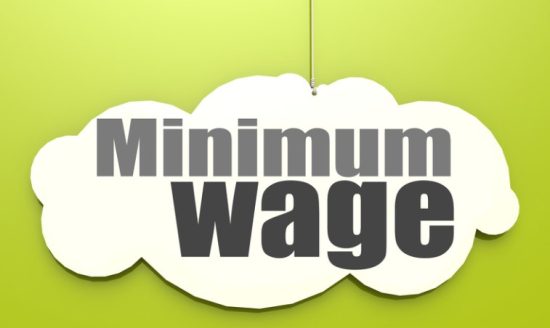Are you curious about the minimum wage in Nova Scotia for 2023? Look no further! As we approach a new year, staying current on changes that may affect your income is essential. Whether you’re a student, part-time worker or full-time employee, understanding the minimum wage rates can help you plan and budget accordingly. In this blog post, we’ll break down everything you need to know about minimum wage in Nova Scotia for 2023 – from how it’s calculated to what industries are affected. So get ready to dive into an informative and insightful read!
What is Minimum Wage in Nova Scotia 2023?

The minimum wage is the lowest hourly pay an employer can offer their employees, as set by the provincial government. The province’s Minimum Wage Review Committee reviews the minimum wage in Nova Scotia every year. The committee looks at a number of factors when determining whether or not to increase the minimum wage, including inflation and the cost of living.
What is the Current Minimum Wage in Nova Scotia?
The current minimum wage in Nova Scotia is $14.50 per hour. This rate applies to all employees except those working in a job specifically exempt from the minimum wage law.
Some employees may be eligible for an increased rate based on their work type. For example, students under 18 are entitled to a minimum wage of $14.50 per hour, and employees working as servers in a restaurant may qualify for the same minimum wage.
How is the Minimum Wage Determined in Nova Scotia?

In Nova Scotia, the minimum wage is currently $14.50 per hour. The province’s Minimum Wage Review Committee reviews the minimum wage each year and recommends any changes to the government. The government then decides whether or not to implement the recommendations.
Nova Scotia’s minimum wage has been increased incrementally over the past few years. In April 2015, it was raised from $10.60 to $10.70 per hour. In April 2016, it was raised again to $11.00 per hour. In April 2023, it was raised to its current rate of $14.50 per hour.
The government is required by law to review the minimum wage at least once every two years. However, they can choose to review it more often if they feel it is necessary.
Proposed Changes to the Minimum Wage for 2024
The Nova Scotia government is proposing changes to the student minimum wage that would see it increase to $15 per hour by 2024. The current minimum wage in the province is $14.50 per hour.
The proposed changes would increase the minimum wage by 75 cents per year over the next four years, reaching $15 per hour in 2024. The government says the increases will help keep pace with the cost of living and help low-wage workers make ends meet.
Some business groups have criticised the proposed changes, who say they will lead to job losses and higher prices for goods and services. The government says it is confident that the benefits of the increased minimum wage will outweigh any negative impacts.
The Impact of Raising the Minimum Wage

There are a number of different ways to look at the impact of raising the minimum wage. The most direct way is to consider the effect on workers who would receive an immediate pay increase. A higher minimum wage would also likely lead to increased costs for small businesses, which could, in turn, lead to higher prices for consumers or reduced profits and job losses.
In terms of the direct impact on workers, a higher minimum wage would provide a much-needed boost to the incomes of low-wage earners. This would help reduce poverty and inequality and could positively spill over effects on health, education and other outcomes. Of course, not all workers would benefit equally from a higher minimum wage – those with lower hourly wages would gain the most, while those at the very bottom of the wage scale might not see any increase at all. And some businesses might respond to higher labour costs by reducing hours or jobs.
So there are both potential positives and negatives to raising the minimum wage. It’s important to consider all of these factors before making any decisions.
Pros and Cons of Raising the Minimum Wage
There is no one-size-fits-all answer to whether or not raising the minimum wage is a good idea. Raising the minimum wage would increase the incomes of low-wage workers, which would likely lead to increased spending and economic growth. Additionally, it could help reduce income inequality.
Cons of raising the minimum wage include that it could lead to job losses, as businesses may cut back on staff or hours in order to offset the higher wages. Additionally, it could lead to inflation if businesses pass on their increased costs to consumers. Ultimately, the decision of whether or not to raise the minimum wage is a complex one with pros and cons to consider.
Conclusion
In conclusion, the minimum wage in Nova Scotia has a chance to set to increase to $16 per hour on April 1, 2024. This represents an increase of 2 per cent over the current rate and will benefit those earning minimum wage or close to it by providing them with a more livable income. The change is seen as a positive step forward for many Nova Scotians who are struggling financially due to the impact of the COVID-19 pandemic and other economic factors. We must continue to monitor this issue closely so that all workers can experience improved financial security and well-being in the years ahead.
FAQ – What is Minimum Wage in Nova Scotia 2023?

Is minimum wage going up to $15 in Nova Scotia?
As of April 1, 2019, the minimum wage in Nova Scotia is $11.55 per hour. The Nova Scotia government has announced that it will be increasing the minimum wage to $15 per hour by 2024. This increase will be phased in over a four-year period, with annual increases of 75 cents per year. After 2022, the minimum wage will be reviewed every four years and adjusted as needed.
What will minimum wage be in 2024 in BC?
In 2024, the minimum wage in BC will be $17 per hour. This is an increase of $0.25 from the current minimum wage of $16.25 per hour. The government has also announced that there will be annual increases to minimum wage each year until 2027.
What will minimum wage be in 2024 in Nova Scotia?
In 2024, Nova Scotia’s minimum wage will be $15.00 per hour. This rate will be reviewed every year by the Nova Scotia Minimum Wage Review Committee.
What is the cost of living in Nova Scotia?
Nova Scotia has a relatively low cost of living compared to other provinces in Canada. The average cost of rent for a one-bedroom apartment in Halifax is $843, while the average cost of a three-bedroom apartment is $1,131. Groceries and utilities are also relatively affordable in Nova Scotia, with the average grocery bill at $146 per week and the average hydro bill at $61 per month.
Nova Scotia also has some of the lowest gas prices in Canada, with an average of $1.14 per litre. In addition, sales taxes are just 15%, which is significantly lower than in most other provinces.
What is the cheapest province to live in Canada?
The cheapest province to live in Canada is Newfoundland and Labrador. The cost of living index in the province is 87.3, which is lower than the national average of 100. The average monthly rent for a one-bedroom apartment in the province is $725, and the average price for a dozen eggs is $2.50. Utilities like electricity and internet are also relatively affordable in Newfoundland and Labrador.










